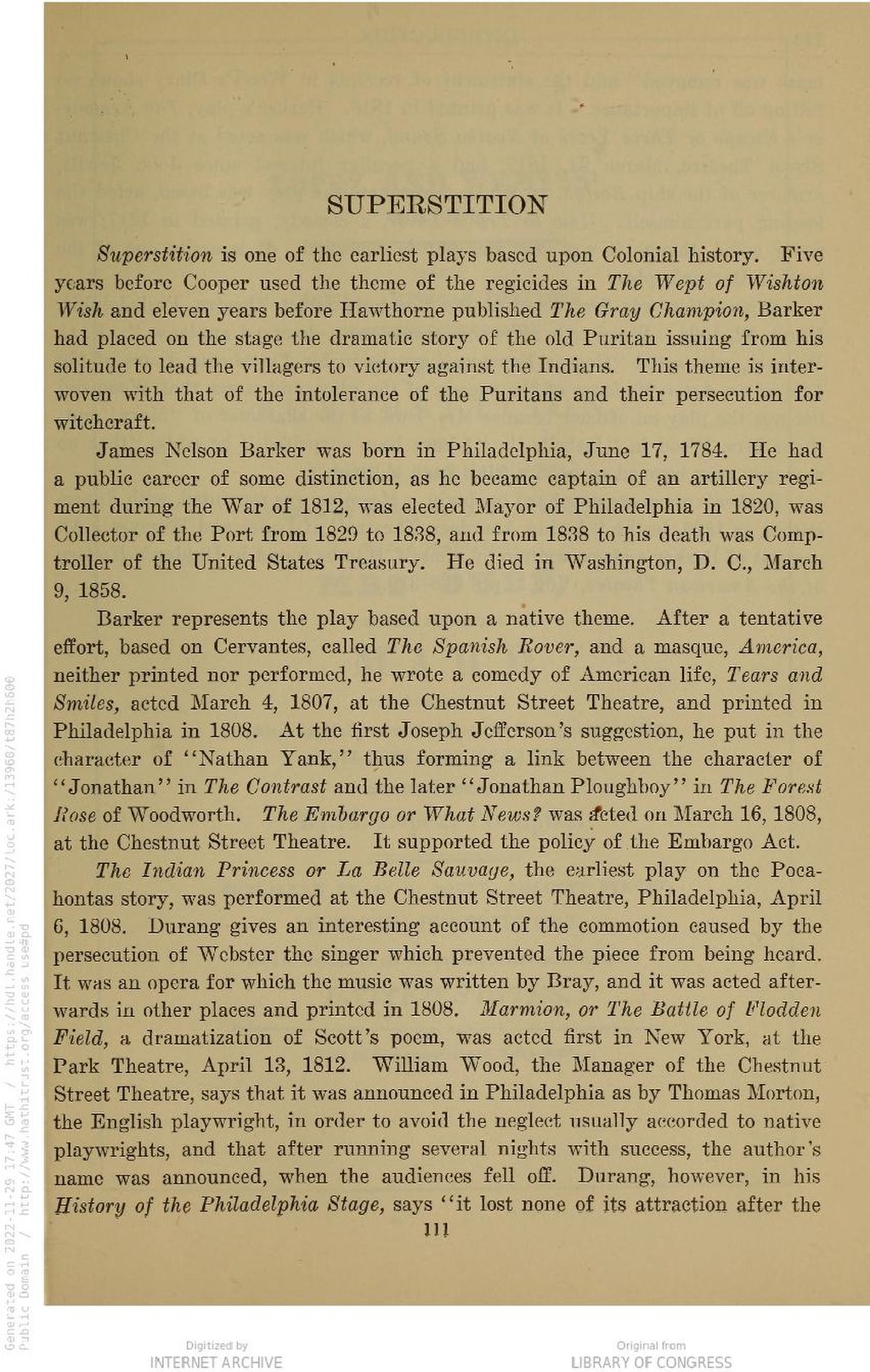SUPERSTITION
Superstition is one of the earliest plays based upon Colonial history. Five years before Cooper used the theme of the regicides in The Wept of Wishton Wish and eleven years before Hawthorne published The Gray Champion, Barker had placed on the stage the dramatic story of the old Puritan issuing from his solitude to lead the villagers to victory against the Indians. This theme is interwoven with that of the intolerance of the Puritans and their persecution for witchcraft.
James Nelson Barker was born in Philadelphia, June 17, 1784. He had a public career of some distinction, as he became captain of an artillery regiment during the War of 1812, was elected Mayor of Philadelphia in 1820, was Collector of the Port from 1829 to 1838, and from 1838 to his death was Comptroller of the United States Treasury. He died in Washington, D. C., March 9, 1858.
Barker represents the play based upon a native theme. After a tentative effort, based on Cervantes, called The Spanish Rover, and a masque, America, neither printed nor performed, he wrote a comedy of American life, Tears and Smiles, acted March 4, 1807, at the Chestnut Street Theatre, and printed in Philadelphia in 1808. At the first Joseph Jefferson's suggestion, he put in the character of "Nathan Yank," thus forming a link between the character of "Jonathan" in The Contrast and the later "Jonathan Ploughboy" in The Forest Rose of Woodworth. The Embargo or What News? was acted on March 16, 1808, at the Chestnut Street Theatre. It supported the policy of the Embargo Act.
The Indian Princess or La Belle Sauvage, the earliest play on the Pocahontas story, was performed at the Chestnut Street Theatre, Philadelphia, April 6, 1808. Durang gives an interesting account of the commotion caused by the persecution of Webster the singer which prevented the piece from being heard. It was an opera for which the music was written by Bray, and it was acted afterwards in other places and printed in 1808. Marmion, or The Battle of Flodden Field, a dramatization of Scott's poem, was acted first in New York, at the Park Theatre, April 13, 1812. William Wood, the Manager of the Chestnut Street Theatre, says that it was announced in Philadelphia as by Thomas Morton, the English playwright, in order to avoid the neglect usually accorded to native playwrights, and that after running several nights with success, the author's name was announced, when the audiences fell off. Durang, however, in his History of the Philadelphia Stage, says "it lost none of its attraction after the
111
